#Shopify ecommerce website builder
Explore tagged Tumblr posts
Text
Why should business people opt to rely on Shopify e-commerce solutions?
It’s a dream to have your own online business. But are you a bit flustered about how to create a mass presence in this comparative web world? Surprisingly with the help of tools, apps and expert guidance, you can create one without any hassle. But the question here is who can give that leverage and wide popularity. Speaking of which, Shopify e-commerce solutions come to the forefront. Of course, you will discover a few significant pointers that vehemently support why you should opt for Shopify.

All in one Hub
Shopify is a powerful eCommerce solution enabling business owners to create online stores. Indeed they can sell their products and services with complete ease. It is an all-in-one platform that provides everything a business needs to create a successful online store. Here you can get all sorts of features right, From designing and developing the store to managing inventory, processing payments, and shipping products. Thus having Shopify keeps you in the front seat always.

Designed for the business of all sizes and genres
With Shopify, you can excel in your business quickly. It is because Shopify offers coverage for all sorts of industry and niches. From large setups to start-ups, all can have Shopify as their selling platform. Even different packages are there to create online stores that too in a personalised way. Of course, it is designed to meet all sorts of typical requirements of the clients.

The Interface is easy to use
Those planning to use Shopify for the first time have this apprehension that it might demand a bit of technical or programming language. However, that is not the case with Shopify at all. Shopify uses an interface that is designed for all kinds of users. It comes with inbuilt themes and templates, allowing you to customise the look of your online shop.
Easy management of inventory
Once you are done with the shopify store setup, the next thing that might bother you is managing the online store. Well, with Shopify, that again becomes an easy chore; you can easily stock, enlist and display products.
Final Thought
Thus, With Shopify Ecommerce Developer, you can relax but simultaneously have your own business. So please don’t waste time and go for it.
#shopify store setup#Shopify as their selling platform#Shopify e-commerce solutions#Web Design Gold Coast#Shopify Ecommerce Developer#shopify Online Store Builder#Shopify is an eCommerce platform#Best eCommerce Platform#building an eCommerce website#With Shopify Ecommerce Developer#Custom Shopify Website Design#Custom eCommerce strategy#Shopify ecommerce website builder#shopify ecommerce Services#Shopify support plans#Shopify ecommerce agency#Shopify support retainer#Leverage our eCommerce expertise#increase sales
0 notes
Text
Create and Sell Software Websites in 60 Seconds!
Revolutionize your software sales and maximize your profits with SoftSites! This fully automated, done-for-you platform lets you create and sell stunning software-loaded websites in less than 60 seconds. No technical skills required. Join thousands of successful marketers who are already reaping the benefits. Don’t miss out on this game-changing opportunity – click the link now to start your journey with SoftSites and watch your business soar!
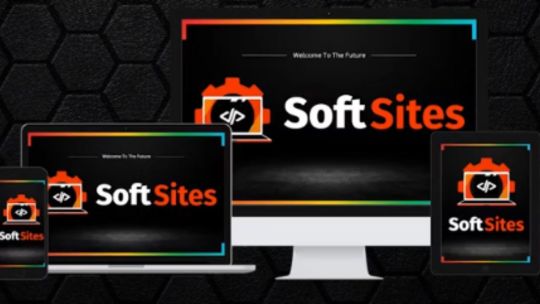
#software#free learning#online sales#website#landingpage#viral#fiverr#upwork#FREELANCER#FreelancerLife#Business Software#ProductivityApps#WorkFromAnywhere#SoloEntrepreneur#FreelanceTool#BusinessSolutions#InnovativeSoftware#NewTech#ecommerce website#shopify stores#website builder#landing page builder
1 note
·
View note
Text

#Ecommerce website builders#ecommerce website builders free#best ecommerce website builders#free ecommerce website builders#ecommerce building website#ECommerce Website Free#Best ECommerce Website Builders#best e-commerce site builder#Best Website Design Company#Shopify#Woocommerce#Wix#Free Online Store#Liveblack
0 notes
Text
Optimize your E-commerce Landing Page with TridentAB

Optimize your Ecommerce Landing Page with TridentAB. Capture your customer’s attention, boost your sales with the TridentAB’s revolutionary solution to optimize your landing page. We can ensure that you will have a high-performing, revenue-generating landing page. Visit the website to know more about Ecommerce landing page optimization.
0 notes
Text
Conversion Tracking Strategist GTM, GA4, Google, Facebook, TikTok
Specialise in ⚡Google Tag Manager, ⚡Google Analytics GA4, ⚡Data Studio, ⚡Ecommerce Tracking, ⚡Conversion Tracking, ⚡Cross Domain Tracking.
Order Now- https://www.fiverr.com/share/gjm4jA
🚀 My Services are 🚀
✅Google Ads ● Setup And Optimize The Campaign ● Proper Bidding Strategy For Better Results ● Research Proper Keywords ● Enhanced Google Ads Conversion ● Add Negative Keywords
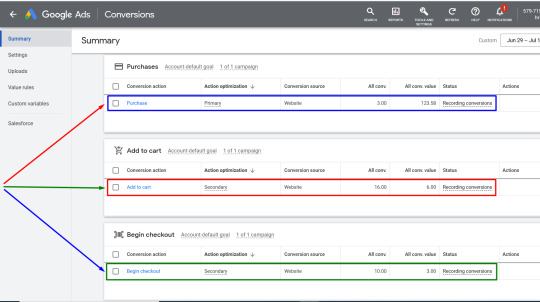
✅Google Analytics 4 ●Install Google Analytics 4 Through GTM ●Track Form Submission ●Button Click Tracking ●Enable Google Signals ●Block Internal Traffic ●Create Audiences For Google Ads Remarketing ●Setup Conversions ●GA4 eCommerce Tracking: ●Custom Reporting & Funnel Analysis
✅Google Tag Manager ●All Kinds Of Tracking ●Facebook Standard Events & Conversion API setup ●GA4 Ecommerce Tracking ●Google Ads Conversion Tracking ●Tiktok Pixel Tracking ●LinkedIn Insight Tracking ●Twitter Pixel Tracking
✅Server Side Tagging ●GA4 Server Side Tagging ●Google Ads Server-Side Tagging ●Facebook Conversion API
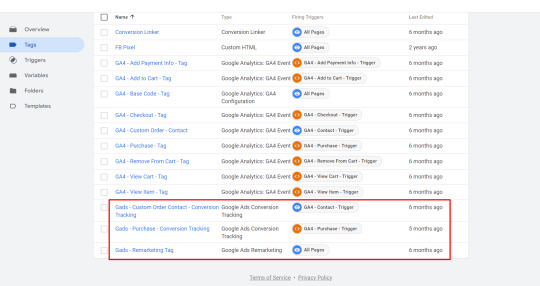
✅Facebook Ads ●Create, Setup & Manage Facebook Ads ●Create A Detailed Buyer Persona for your business ●Setup Aggregated Events Measurement ●Pixel Setup Using GTM ●Conversion API tracking for iOS 14 update setup ●Targeted Audience Research ●A/B Testing Across The Campaigns ●Create Custom & Lookalike Audience ●Campaign Optimization & Reporting
If you have existing issues I will work with you to get them resolved as quickly as possible.
#googleanalytics4 #facebookads #google #googleadwords #googleanalytics4 #ecommercemarketing #eventtracking
#google ads#ecommerce website builder#shopify conversion tracking#google tag manager#facebook pixel#digitalmarketing#facebook ads#google analytics#google tracking#socialmediamarketing#facebook marketing#facebook messenger
1 note
·
View note
Text
Shopware Costs: What Does It Cost to Run Such an Online Shop?

Shopware, the well-known e-commerce platform, has grown steadily since its inception, offering users a wide range of functionalities and an easy-to-use user interface. The platform is primarily intended for simple sales platforms, start-up businesses, and small to medium-sized organisations.
It is critical to have a basic understanding of the platform before launching an online store on the platform. It would help if you also researched whether it would be appropriate for your shop and how much it would cost to run an online store using Shopware. Continue reading to learn more and explore the platform’s pricing to run and maintain the shop you ought to start.
Available Editions and It’s Pricing
Now let’s take a look at the Shopware prices for all editions. First, consider how much money you’ll need to run e-commerce websites based on various versions and what features you’ll get. Suppose you are looking for a free version to try the platform. In that case, you will have two options, the community edition and the starter edition.
If you are about to take on the paid versions of the platform, then go for the professional or enterprise edition. But, first, let’s review each edition and the associated pricing options since the licensing costs depend on the edition you select.
Shopware has an easy pricing scheme. Four editions are available:
Community Edition (Free Version)
Starter Edition (Free Version)
Professional Edition (Paid Version)
Enterprise Edition (Paid Version)
Click here to know more
#shopware#shopify#online shops offer#online store#online store builder#ecommerce#ecommerce websites#ecommerce website design#ecommerce website develop#opensource
0 notes
Text
What are the best tips for Ecommerce App Development?
There are many things to consider when developing an ecommerce app, but here are some of the best tips to keep in mind.The first tip is to focus on user experience. Your app should be easy to navigate and use, with clear menus and intuitive functions. This will help ensure that your customers can easily find what they are looking for and make purchases quickly and easily.
Another important tip is to invest in security features. With so much sensitive information being transmitted and stored through your app, it is critical that you take steps to protect against data theft or other security breaches. This may include using encryption technologies or hiring a team of dedicated developers who specialize in security.

Finally, it is important to stay up-to-date with the latest trends and technologies in ecommerce. This means regularly updating your app to add new features, improve performance, and keep pace with changing customer needs.If you are able to follow these tips, you can develop a successful ecommerce app that will help drive sales for your business.
You can get a ecommerce app development from us, visit our ecommerce app development service page: https://getwebinc.com/e-commerce-app
#ecommerce#dropshipping#marketplace#webdevelopment#website#ecommerce app builder#shopify#woocommerce
1 note
·
View note
Text
The Best B2B Ecommerce Platform for 2023
There are a lot of factors that overlap between B2C and B2b selling.
whether you're selling to a company or an end-customer, you're going to need a strategy for building relationships with your target audience. This means investing in tools like landing page builders, email marketing that you can automate, and even social media integrations.
To save yo some cruicial time and effort in the hunt for the right ecommerce capabilities, we've put together this list of our top B2b ecommerce website builders and tools.
Shopify Plus: It is a cloud-based, fully hosted e-commerce platform that provides businesses with an all-in-one solution to sell their products online. It has robust B2B features like custom pricing, wholesale channel, and purchase orders.
Magento Commerce: It is an open-source e-commerce platform that provides businesses with a flexible and customizable solution for their B2B needs. It has features like customer segmentation, account management, and custom pricing.
BigCommerce: It is a cloud-based e-commerce platform that provides businesses with a feature-rich solution for their B2B needs. It has features like customer groups, custom pricing, and purchase orders.
WooCommerce: It is an open-source e-commerce platform that provides businesses with a scalable and customizable solution for their B2B needs. It has features like customer management, product catalog management, and order management.
Dial42: Dial42 provide a convenient way for businesses to source products and services, compare prices, and negotiate with suppliers without having to go through traditional procurement channels. Dial42 also offer various value-added services such as logistics, payment processing, and dispute resolution to streamline the buying and selling process for businesses.
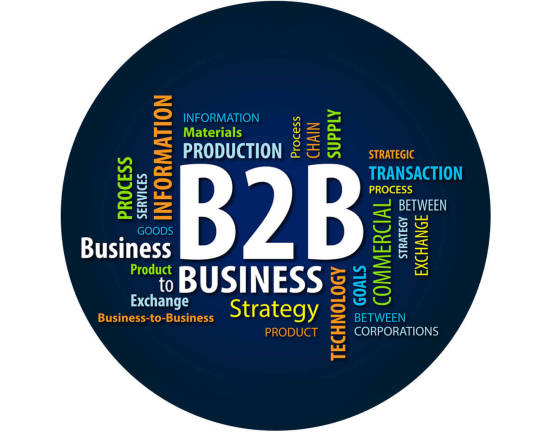
#B2B#B2C#B2BMarketing#B2BSales#B2BLeadGeneration#B2BBusiness#B2BMarketplace#ecommerce#Marketplace#Sales#BusinessListing#BusinessDirectory#FreeWebStore#ConnectSellGrow#marketing
3 notes
·
View notes
Text
for (fellow) Etsy sellers who are now looking for alternatives, here's what i found after some (brief) research!* *please double check my work and let me know if i should remove/add anything from this list!
CENTRAL MARKETPLACE OPTIONS
these are sites that work like etsy, where you can see products from all stores on the platform through one search function. these will be best for people who don't have a specific following or social media presence, as the audience will come to your shop through the marketplace. ARTISANS COOPERATIVE—artisans.coop born out of an etsy strike, this site functions extremely similarly to etsy with a few important changes—it's member-owned rather than Big Corporate-owned, and there is a thorough vetting and verification process to ensure that products being sold are genuinely handmade, so as to avoid dropshippers. one thing to note is that if you use print on demand services such as printful, this may not be the place for you—artisans coop only allows PoD services for 2d goods of things like photography and illustration, meaning if you sell PoD mugs with your artwork on them, that won't be allowed here. additionally, they're still in beta, which means you have to become a member (for a fee of $100USD or $1000USD) to be able to open up a shop, at least currently. GOIMAGINE—goimagine.com [when i searched free palestine on their site, nothing related to palestine came up. now this could be just because they have a smaller userbase and no one has made anything palestine-related, but given the general white usamerican christian vibes from the site, i'm not totally sure that's the case. anyhow, i chose to include it for the sake of providing options, but please (once again) do your own research] this place seems kinda cool—all of the profits that goimagine (not the sellers!) make get donated to a handful of charities that help children!
FOLKSY—folksy.com only available to UK sellers, but seems like a fairly similar concept to etsy. nothing came up when i searched "free palestine," though, so might be worth doing a bit more digging about.
INDEPENDENT ONLINE SHOP OPTIONS
these are places that will help/allow you to put your products on your own shop website, (sometimes) with your own domain/url. these are generally better for folks who have an audience or social media following and can direct traffic to your website that way.
SHOPIFY—shopify.com probably the most well-known/common way to run an online shop. (i think) you can create your website through shopify, or connect it to other web builders. it has a lot of different plan options, but none of them are free. the cheapest one starts at $5USD/month but doesn't give you a website as far as i can tell? generally kind of difficult to figure out what you can do without starting an account with them, which i don't want to do yet (so if anyone uses shopify and can help clarify this, that would be appreciated!)
BIGCARTEL—bigcartel.com bigcartel gives you a website where you can sell your own products, and they have a free plan! you don't get a custom domain and can only have up to five products up for sale at a time, but you can upgrade your plan for more products/other features. i've used them before, it worked great for the short-term project i needed it for (but would be great for long term shops as well, i just don't have long-term use experience with it)
INDIEMADE—indiemade.com like bigcartel but seems marketed/designed more for smaller/handmade stuff? cheapest plan is $5USD/mo and lets you have ten products; $12.50USD/mo lets you have 250. has options to sync/connect with etsy, which would make transitioning fairly simple!
SQUARESPACE—squarespace.com a website builder that has robust ecommerce features, but the cheapest ecommerce plan is $28USD/mo. although it seems like on their $23USD/mo plan you can also sell things, but they charge a higher transaction fee and that plan doesn't include "powerful merchandising," whatever that means.
i'm not sure where i'll be moving to, but if/when i decide (and if i remember), i'll update you with what i pick and how i like it!
i hope this helps <3
I'm not buying from Etsy now


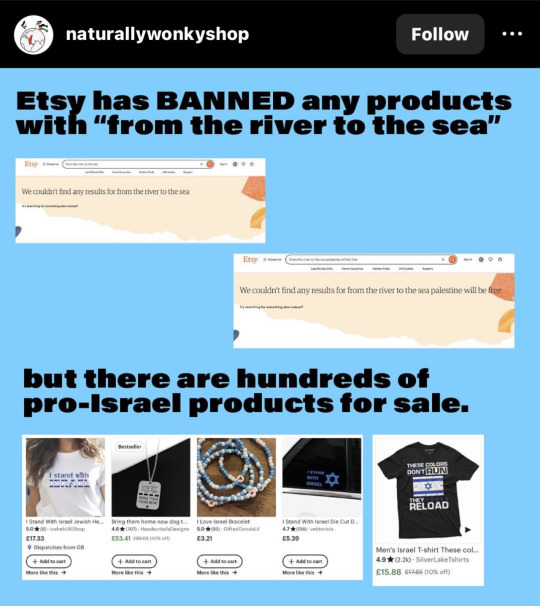




10K notes
·
View notes
Text
KartFlow Review – Builds Highly Profitable eCom Funnels
Welcome to my KartFlow Review. In the dynamic world of eCommerce, Entrepreneurs and business owners are keen to find out creative tools to help in streamlining business operations, improving workflow and expanding revenue. Meet KartFlow: The revolutionary app to build high converting eCommerce funnels with hundreds of winning products preloaded.

With CartFlow, we use a single keyword to claim that we can generate conversion rates on the order of 10 times higher than Shopify, Amazon, or eBay. In this complete review, we will discuss about the features, pros and cons, and how great is the KartFlow for your eCommerce business.
What Is KartFlow?
KartFlow is a next generation eCommerce funnel builder providing the ability to build entirely functional online stores in seconds with minimal effort. While not segment popular the way traditional eCommerce platforms do, KartFlow takes a cut at identifying trending product and creating stripped down sales funnels around single words.
This approach is innovative in that it allows for entrepreneurs to jump into market trends quickly and efficiently – which is a valuable resource considering that there are a lot of people trying to get into the eCommerce space.

KartFlow Review: Overview
Product Creator: Seun Ogundele
Product Name: KartFlow
Launch Date: 2024-Nov-01
Launch Time: 11:00 EDT
Front-End Price: $17 (One-time payment)
Official Website: Click Here To Visit Official Salespage
Product Type: Tools and Software
Support: Effective Response
Discount: Get The Best Discount Right Here!
Recommended: Highly Recommended
Bonuses: YES, Huge Bonuses
Skill Level Required: All Levels
Discount Coupon: Use Code “KFL5OFF” To Get $5 OFF!
Refund: YES, 180 Days Money-Back Guarantee
KartFlow Review: Key Features of KartFlow
✍ AI-powered eCom Funnel Builder
Effortlessly launch a profitable ecommerce funnel with high-demand products, images, video, and sales copies to tap into the $9 trillion online retail market. Sell sought-after items and start making money with KartFlow users.
✍ AI Winning eCom Products (Product Descriptions, Images, Video, Ads)
KartFlow is an AI-powered software that enables you to effortlessly create and launch your own eCom Funnel with 100s of WINNING PRODUCTS with ready-made copies, product descriptions, product images, product video ads.
✍ Product Description Generation
With KartFlow, you don’t have to worry about writing product descriptions. The AI technology used by KartFlow generates high-quality product descriptions that capture your brand’s essence and drive conversions.
✍ Headline and Subheadline Creation
KartFlow also generates attention-grabbing headlines and subheadlines that are sure to capture your target audience’s attention.
✍ AI Copywriter
KartFlow’s AI copywriter creates high-converting copy for product descriptions, headlines, and subheadings, taking the burden of writing off your shoulders.
✍ AI Email templates
KartFlow includes pre-made email templates that you can use to connect with your customers and promote your products.
✍ Fulfill & Deliver / Dropship Successful Order
Auto-Fulfil Orders Easily from a Single Dashboard. In 1 click, you can move orders from successful to fulfill once you’ve actually fulfilled them so that every order is neatly tracked and processed.
✍ 100s of Unlimited Pre-built Sales Funnel Templates and Winning Products
Create awesome design templates to fit with any kind of products, Set price for that and users able to use it with one-click.
✍ 100s of Pre-made Sections Allowing You to Build your eCom Funnels Super-Fast
Are you worry about the sleek design for your funnels? Let us handles that for you, you can do other things you love. There are more than 100+ Pre-made Sections Allowing You to build your eCom Funnels Super-Fast. Amazing blocks!
✍ Pixels Integration
Integrate Facebook Pixels To Your Funnel & Retarget Customers That Abandoned Cart
✍ Product and Order Management
Easily manage all your products (Add, Edit, and Delete) and Orders from a Single Dashboard.
✍ Express Checkout Technology to Collect Payments & Process Orders with Top Merchants
KartFlow is built in a way that you can effortlessly convert visitors into customers without any unnecessary rigorous process that only hurts your bottom line. We’re seamlessly integrated with all the top payment processors and merchant providers for eCommerce including Paypal, Stripe
✍ Easy “Drag & Drop” Page Builder to Create Stunning Sales Pages for eCom Products
You don’t need any design skills to use Instant eCom Funnels. Everything inside is easy-to-customize with a simple drag and drop.
✍ Autoresponder Integration
KartFlow Iintegrates with top AR Like Getresponse, Aweber, AcelleMail, Html Forms to Build leads and Buyers List.
✍ Social Share Buttons For Free Traffic
Instant eCom Funnels has traffic built-in via the social share buttons that appear on all pages of your eCom funnels. This is particularly useful to generate free viral traffic on demand!
✍ Support Multi languages
KartFlow support language switching. All languages were controlled and translate automatic from the admin panel, and you can put your translate text there.
KartFlow Review: How Does It Work?
You’re Just 3 Steps Away From Creating Your Very Own Highly Profitable eCom Funnels
Step #1: ASK
Enter any keyword to choose a niche/product. For example, you could choose “weight loss” Or, if you’re not sure, ask KartFlow to choose one for you.
Step #2: GENERATE
The AI will generate highly profitable eCom Funnels loaded with Products, Images and Pre-written Sales Copy.
Step #3: PROFIT
Use our 1-click AI traffic generator that taps into a 2.6Billion Buyers at the press of a button, to flood your ecom funnels with traffic & Sales.

KartFlow Review: Benefits of KartFlow
Proven to Convert 10X better than Shopify, Amazon & Other Stores
Brand New Storeless Technology Build Cash Generating eCom Funnels Using Just a Keyword or Voice
You don’t need to deal with any shipping, returns, packing, or inventory Everything is done for us
No expensive Monthly Subscription or Charges is required, Say No to Shopify, Amazon and eBay holding you Hostage
You can create fully-functional eCom Funnels, in just 60 seconds with KartFlow’s powerful AI
KartFlow’s copywriter creates product descriptions and Sales copy that have people rushing to buy
We’re making money selling products that people LOVE and want…
No Ad Cost – 1-Click AI Traffic Generator put your Funnels Infront of 2.6B users at the press of a button, to flood your funnels with UNENDING traffic
Or use our built-in AI copywriter to write ultra-profitable Facebook, Google, or YouTube ads
The eCom Funnels are fully mobile optimized
No Tech Skills or Experience – Anyone Can Do This!
180 day money back guarantee: Try out KartFlow for 6 months, completely risk free
Verify Users Say About KartFlow


KartFlow Review: Who Should Use It?
eCom Store Creator
Website Owners
Social Media Marketers
Affiliate Marketers
E-com Store Owners
Video Marketers
Small Business Owners
Bloggers & Vloggers
Coaches/Trainers
Advertising Agency Owners
Video Ad Creators
Webinars/Seminars
Presenters
Product Review Marketers
Ditigal Trend Setters
Brand Influencers
And Many Others
KartFlow Review: OTO’s And Pricing
Add My Bundle Coupon Code “KFL30OFF″ – For 30% Off Any Funnel OTO Below
Front End Price: KartFlow ($17)
OTO 1: Kart Flow Unlimited (67)
OTO 2: KartFlow Done For You ($297)
OTO 3: KartFlow Automation ($47)
OTO 4: KartFlow Income Booster ($47)
OTO 5: KartFlow Limitless Traffic ($97)
OTO 6: KartFlow $10k Affiliate Profits ($67)
OTO 7: KartFlow Mobile Payday ($47)
OTO 8: KartFlow Reseller ($197)
OTO 9: KartFlow DFY Profit Site ($47)
KartFlow Free Premium Bonuses
Bonus #1: KartFlow $10K Monthly Extravaganza – Your LIVE Invite Awaits!
You’ll get invited to a free live training where you’ll uncover the step-by-step formula to go from $0, to $10,000 monthly no matter what experience level you’re at.
Bonus #2: KartFlow Crypto Pay Integration
With cryptocurrency reaching mainstream adoption, we’re giving you access to the KartFlow Crypto Pay integration. This will let you accept cryptocurrency as a payment for your KartFlow funnels in addition to credit cards, to maximize sales opportunities.
Bonus #3: KartFlow Dropshipping AliExpress Addon
You can begin dropshipping products with ease, with the AliExpress addon. Simply choose a product on AliExpress to sell, put it on a KartFlow funnel, and you’re good to go.
Bonus #4: KartFlow GO Food & Grocery Delivery Integration
Not only can you sell products with KartFlow, you can create online stores for restaurants and grocery stores to sell their products, and charge them a fee, like Instacart, DoorDash, UberEats.
KartFlow Review: Pros and Cons
Pros:
High Conversion Rates: It’s designed to increase sales and reduce cart abandonment.
User-Friendly Interface: With simple interface, perfect for beginners.
Preloaded Winning Products: It saves time and effort in product research for a business.
Integrated Marketing Tools: It drives traffic and increases sales.
Quick Setup: With minimum technical know-how, launch your store in minutes.
Cons:
No free plan: Paid subscription only.
Requires stable internet connection.
Nothing wrong with it, it works perfectly!
Frequently Asked Questions (FAQ’s)
Q. What is KartFlow?
It’s an ingenious app that uses AI to create Highly Profitable eCom Funnels Preloaded with HOT Winning Products Using Just A Keyword and we don’t have to ship or manufacture anything.
Q. Do I need to be an AI wizard to use KartFlow?
Not at all! KartFlow is designed to be user-friendly, with an intuitive dashboard that’s perfect for newbies and experts alike.
Q. What if KartFlow doesn’t live up to the hype?
Rest easy, friend! If KartFlow doesn’t meet your expectations within 180 days, just let us know and we’ll gladly refund every single penny.
Q. Are there any hidden fees lurking around the corner?
Absolutely not! Your one-time investment covers your lifetime access to KartFlow, with no extra costs or hidden fees.
Q. What if I get confused while using KartFlow?
Fear not! We’ve got your back with an exclusive library of detailed video tutorials that’ll guide you through every step of the way.
Q. Can I use KartFlow on my PC, Mac, Android, or iOS device?
You bet! KartFlow is designed to work seamlessly on any device, making it a true AI companion for everyone.
Q. How can I secure my exclusive KartFlow discount?
Just click the button below, and you’ll be on your way to enjoying KartFlow at the lowest price available. Don’t miss out on the AI revolution!
My Recommendation
Finally, KartFlow introduces a brand new method of designing eCommerce funnels. It’s an AI driven technology along with preloaded winning products and automated marketing materials to give you a unique and very powerful tool to boost your profit. Being a newbie or a pro marketer, KartFlow has got a user friendly interface and valuable insights that are both beneficial and convenient.
As an eCommerce business owner wanting to simplify your operations, cut down on the time spent on building funnels and increase your revenue, KartFlow might just be what you need. If you don’t already use HubSpot CRM, then at least consider giving it a go with the free trial to see if it works for your business.
>>> Click Here to Visit KartFlow and Get Access Now <<<
Check Out My Previous Reviews: Tube Cash AI Review, FunnelXAi Review, Vidintrux AI Review, and Chatbot Profits Review.
Thank for reading my KartFlow Review till the end. Hope it will help you to make purchase decision perfectly.
#KartFlow#KartFlowreview#KartFlowHonestReview#KartFlowfeatures#KartFlowworks#KartFlowdiscount#KartFlowfe#KartFlowoto#KartFlowbonus#howtoKartFlowworks#KartFlowsoftware#KartFlowFunnels#KartFlowUpsell#KartFlowWorth#KartFlowDemo#ai#software#Traffic#AIApp#AITool#ArtificalIntelligence#Dropshipping#Ecommerce#Shopify#FunnelStrategy#eCommerceTools#SalesFunnels#OnlineBusiness#MarketingTips#DigitalProducts
0 notes
Text
Comparing Popular Website Builders: Which One is Right for You?
Choosing the right website builder can significantly impact your online presence. Each platform offers unique features, pricing, and user experiences. Here's a comparison of some of the most popular website builders to help you decide which one suits your needs best.
1. Wix
Overview: A highly versatile drag-and-drop website builder that offers extensive customization options.
Pros:
User-friendly interface with a wide range of templates.
Hundreds of apps available in the Wix App Market for added functionality.
Good SEO features and responsive design.
Cons:
The free plan displays Wix ads and has limited storage.
Once you choose a template, you can’t change it without starting over.
2. Squarespace
Overview: A visually appealing platform ideal for creatives and small businesses, known for its stunning templates.
Pros:
Beautiful, professionally designed templates that are fully customizable.
Excellent built-in blogging features and eCommerce capabilities.
Responsive customer support and community resources.
Cons:
More expensive than other builders, especially for eCommerce features.
Less flexibility in design compared to some other platforms.
3. Weebly
Overview: A simple and intuitive website builder that’s great for small businesses and online stores.
Pros:
Easy to use with a drag-and-drop interface.
Integrated eCommerce features with various payment options.
Good mobile optimization and basic SEO options.
Cons:
Limited customization compared to Wix and Squarespace.
Fewer design templates and apps available.
4. Shopify
Overview: A dedicated eCommerce platform designed for building online stores, suitable for businesses of all sizes.
Pros:
Comprehensive eCommerce features, including payment gateways and inventory management.
A wide range of themes specifically designed for online retail.
Extensive app ecosystem for added functionality.
Cons:
Monthly fees can add up, especially with added apps.
More complex than other builders for users not focused on eCommerce.
5. WordPress.com
Overview: A hosted version of WordPress that offers a balance between ease of use and customization.
Pros:
Highly customizable with thousands of themes and plugins available.
Excellent for blogging and content-focused sites.
Strong community support and resources.
Cons:
The learning curve can be steeper than other builders.
Limited functionality on the free plan, and advanced features require paid plans.
6. GoDaddy Website Builder
Overview: A simple website builder that’s great for small businesses and quick setups.
Pros:
User-friendly with an easy setup process.
Integrated marketing tools and SEO options.
Good for users looking for a straightforward solution.
Cons:
Limited design customization and fewer templates.
Less flexibility for larger or more complex sites.
Conclusion
Choosing the right website builder depends on your specific needs, technical skills, and budget.
For Creative Portfolios: Consider Squarespace for its stunning designs.
For ECommerce: Shopify is your best bet for a dedicated online store.
For Ease of Use: Wix and Weebly are excellent for beginners who want a straightforward setup.
For Content-Rich Sites: WordPress.com offers the flexibility and customization that bloggers love.
Take the time to evaluate each platform based on your goals, and consider starting with a free trial to explore the features before making a final decision.
0 notes
Text

Appealing Shopify Landing Page Builder | TridentAB
Create visually stunning and high-converting Shopify landing pages effortlessly with Shopify Landing Page Builder. Shopify is a user-friendly drag-and-drop page builder. Its library of templates and customizable elements enables you to design unique, responsive pages without coding skills. Boost your sales and enhance your brand's online presence with Shopify's appealing landing page builder. Get more information from the website.
#shopify split testing#a/b testing tools#shopify landing page builder#shopify ab testing#ecommerce a/b testing#ecommerce website builder#ab testing on shopify
0 notes
Text
I don´t have a lot to say about anything else on the list but i just wanna ad my experience as someone who is running my shop through squarespace because i feel like that´s not really a good point against it.
yes you do not own the templates and can´t take them with you. that´s standard on website builders like this. the same applies to other providers like Wix, Shopify, ect. Even if you use a free provider that lets you host templates you downloaded elsewhere you still do not own the template. if you want to own your websites code you have to code it yourself or pay someone to do so.
honestly i don´t think squarespace is worth it for regular websites tho. there are cheaper or even free options to do that on that have similar/the same features.
that being said i personally use it for ecommerce because with an online shop the back office is as important as the actual website and i haven´t had any major issues with squarespace there. all of the features are there that i need and it has some nice extra features. it´s not the best option for everyone and my recommendation is honestly to use the free trials of a bunch of options to see what you vibe with.
my last point is that honestly i wouldn´t buy the domain through squarespace. you can buy it from anywhere and than link it to squarespace which makes it a lot easier if you wanna move your site someday.
it´s a service that provides you with templates and a backoffice to make running a website easier. there are cheaper providers of that service and there are completly different ways to do it but squarespace is an option you can use, if a bit of a pricy one.
(and honestly i recommend it over etsy anyday because at least they actually provide something for the money you give them)
Fundamental life advice: never trust a product from a youtuber/influencer sponsorship
#also they don´t legally own the content you put on the template. they just own the template.#squarespace doesn´t suddenly own my logo and product images. that´s not how copyright works#long post#but felt like adding to it#like yeah moving shop sucks because you have to rebuild it from scratch but like. it´s basically the industry standard to not#own the templates. you don´t even own your tumblr blogs template unless you coded it yourself#and you can technically write your own html on squarespace
118K notes
·
View notes
Text
Wix vs. Shopify At a Glance
Both platforms offer excellent functionality for building online stores, but Shopify is built specifically for eCommerce, while Wix shines for small businesses or creatives looking for simplicity and flexibility.
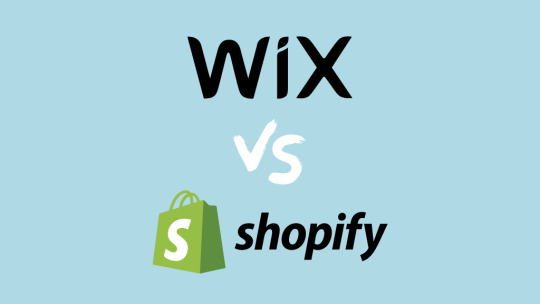
Wix is better for small businesses or bloggers who need a user-friendly platform and don’t require advanced eCommerce tools.
Shopify is designed for businesses with larger inventories and global customers, offering more robust features for scaling and selling.
FeaturesWixShopifyEase of Use⭐⭐⭐⭐⭐ Drag-and-drop interface; beginner-friendly⭐⭐⭐⭐ Customization requires coding for advanced featuresInventory⭐⭐⭐ Limited eCommerce tools⭐⭐⭐⭐⭐ Comprehensive tools; built-in fulfillment networkInternational Focus⭐⭐⭐ Limited multilingual and shipping options⭐⭐⭐⭐⭐ Multicurrency and advanced shipping integrationsBlogging⭐⭐⭐⭐⭐ Powerful blogging capabilities⭐⭐⭐⭐ Decent but not the primary focusMarketing Features⭐⭐⭐⭐⭐ Built-in email and SEO tools⭐⭐⭐⭐ Email marketing available with integrationsCost⭐⭐⭐⭐⭐ More affordable plans, 14-day free trial⭐⭐⭐⭐ Competitive pricing, with advanced plans starting at $79/monthIntegrations⭐⭐⭐⭐⭐ 500+ apps, integrates with ZeeDrop⭐⭐⭐⭐⭐ 6,000+ integrations, strong eCommerce focusPOS System⭐⭐⭐ Only available in the US and Canada⭐⭐⭐⭐⭐ Global availability, free with Shopify plansAI Features⭐⭐⭐⭐⭐ Advanced AI for content and design⭐⭐⭐ Product description generatorsCustomer Support⭐⭐⭐⭐ Phone support during business hours⭐⭐⭐⭐⭐ 24/7 phone, chat, and email support
Shopify: The More Scalable eCommerce Solution
When it comes to scaling your eCommerce business, Shopify takes the crown. It’s designed specifically for online selling, offering top-tier shipping and fulfillment benefits. Not only does Shopify have its own fulfillment network, but it also partners with carriers to offer discounts of up to 89% on shipping.
For businesses with high sales volumes, Shopify’s automation features, like inventory management for an unlimited number of products, are unbeatable. Wix, on the other hand, limits you to 50,000 products and offers fewer product variants.
Shopify also integrates with over 6,000 eCommerce-specific apps, such as Klaviyo and Spocket, compared to Wix’s 500+ apps. This means Shopify is more versatile, especially for larger eCommerce operations.
Wix: Better for Creative Design Flexibility
While Shopify is optimized for online stores, Wix excels in site design, offering over 800 templates for free. This makes Wix the better choice for those seeking creative freedom with design.
Unlike Shopify’s structured, block-based editor, Wix provides a drag-and-drop editor, giving users more flexibility to position elements anywhere on the page. Although Shopify’s themes are mobile-responsive by default, Wix requires some manual tweaking for mobile optimization, but the tools for doing so are intuitive.
For small businesses, personal projects, or creative portfolios, Wix's design capabilities may be more appealing.
Marketing: It Depends on Your Audience
Both platforms offer a range of marketing tools, but which is better depends on your focus:
Wix has powerful blogging features and built-in SEO tools that integrate with Semrush for keyword data, making it ideal for content-heavy marketing strategies.
Shopify, while capable of supporting blogs, is geared more toward eCommerce marketing, offering tools like automated abandoned cart recovery and upsell emails. Shopify also supports multicurrency payments and has a multilingual URL feature, which gives it an edge for businesses with an international audience.
Wix Offers More Advanced AI Tools
When it comes to artificial intelligence, Wix is a clear leader. With its AI website builder, you can create a fully functional site in minutes. Wix also offers a variety of AI-driven tools, like SEO assistants, text generators, and image auto-enhancement.
While Shopify has its own AI tools, like product description generators and email optimization features, these are less extensive compared to Wix’s suite of AI-driven functionalities.
When it comes to optimizing your website for search engines, SEO is a critical factor in driving the right customers to your store. Both Wix and Shopify perform exceptionally well in this area, scoring 5 out of 5 in SEO testing. Both platforms offer essential SEO features, including sitemaps and mobile optimization, ensuring your site is well-prepared to rank highly in search results.
Wix’s SEO Features
Wix stands out for its personalized SEO checklist, which provides real-time feedback on your site’s content and settings. This tool ensures you're taking the right steps to improve your site's visibility. One of the most exciting additions is the AI Meta Tag Creator, available to premium users. This tool automates the process of generating meta titles and descriptions, helping you optimize your pages without the hassle of manually entering the data.
Although Wix’s free plan doesn’t include access to the AI Meta Tag Creator, users still benefit from a wide array of SEO tools, including advanced SEO page settings that allow you to customize each page’s title, description, and URL structure.
Shopify’s SEO Features
While Shopify offers standard SEO features, it shines in ecommerce localization. Shopify provides support for 30+ languages through the Translate & Adapt app, allowing businesses to translate their content and reach international audiences. Shopify is also improving its localization capabilities with new ecommerce features, such as automatic site localization based on browser language, and will be removing the Geolocation app by December 2024, streamlining the international experience for businesses.
Internationalization and Localization
For businesses looking to expand globally, Wix leads the way. It supports 180 languages and automatically translates your content for international visitors, simplifying the process of global outreach. Wix’s partnership with Global-e further enhances its ability to assist businesses in selling products across multiple markets, making it a strong contender for international ecommerce.
While Shopify also supports internationalization, its reliance on third-party apps like Translate & Adapt limits its out-of-the-box language capabilities. However, Shopify's ongoing improvements in this area make it a competitive choice for businesses looking to target international markets.
The Winner for SEO: Wix
In the SEO battle, Wix edges out Shopify due to its comprehensive features, including custom SEO support, automatic translation, and AI-powered meta tags. These tools give Wix users an advantage in boosting their site's visibility and appealing to global customers.
Using ZeeDrop for Cross-Listing on Wix and Shopify
For sellers looking to maximize their product reach, ZeeDrop Crosslister is an invaluable tool. It supports both Wix and Shopify, making it easy to manage listings across multiple platforms. ZeeDrop simplifies the process of transferring products from any suppliers more than 300 to your Wix or Shopify store, ensuring seamless integration and efficient cross-listing. This tool helps sellers save time, reduce errors, and expand their business by reaching a broader customer base on both platforms.
Which Is Cheaper: Shopify or Wix?
Both platforms offer competitive pricing, but Wix generally costs less:
Wix plans start at $17/month, while Shopify’s basic plan begins at $29/month. However, Shopify does offer an enticing $1/month deal for the first three months, which may be a deciding factor for new businesses looking to save early on.
For more advanced plans, Shopify can get expensive, with its top-tier Shopify Plus plan starting at $2,300/month, whereas Wix caps out at $159/month.
Shopify vs. Wix: Which Should You Choose?
Ultimately, the choice between Wix and Shopify comes down to your specific business needs:
Choose Wix if you’re a small business, creative professional, or blogger looking for design flexibility and ease of use.
Choose Shopify if you’re running a medium to large-scale eCommerce business with a global customer base and require advanced inventory, marketing, and fulfillment features.
Frequently Asked Questions:
Can I use Wix for eCommerce? Yes, but Wix is better suited for smaller eCommerce operations.
Which is better for larger businesses, Wix or Shopify? Shopify is ideal for larger businesses, offering better scalability and advanced eCommerce features.
Does Wix have better design features than Shopify? Wix offers more design flexibility, while Shopify is more structured but optimized for mobile responsiveness.
In conclusion, while both Wix and Shopify have their merits, Shopify is the superior platform for serious eCommerce businesses, while Wix excels in creativity and user-friendliness for smaller sites.
0 notes
Text
Key Benefits of Migrating from Squarespace to Shopify
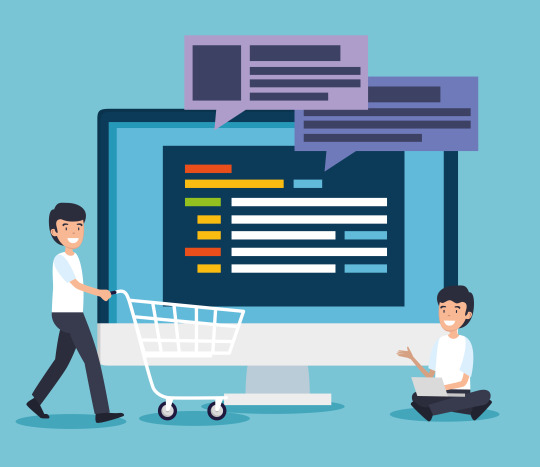
As your online store grows, it’s crucial to have a platform that scales with your business needs while offering powerful tools to optimize your e-commerce operations. Many businesses that initially start on Squarespace eventually find the need to migrate to a more robust and feature-rich platform like Shopify. While Squarespace is an excellent website builder with user-friendly design capabilities, Shopify is an industry leader when it comes to dedicated ecommerce functionality, scalability, and customization options.
In this detailed guide, we’ll explore the key benefits of migrating from Squarespace to Shopify, highlighting why this shift could be the right move for your growing business.
1. Enhanced E-commerce Capabilities
One of the most significant reasons for switching to Shopify is its superior e-commerce functionality. Squarespace is mainly a website builder with e-commerce features added as a secondary focus, whereas Shopify is purpose-built from the ground up to support online selling. When comparing the tools and features offered for managing an online store.
Shopify provides:
Advanced product management: You can manage complex product catalogs with variations like size, color, and material, and set up dynamic pricing for different options.
Comprehensive order management: Shopify offers sophisticated order processing tools, including tracking, fulfillment, and real-time shipping calculations.
Abandoned cart recovery: This feature sends automated emails to customers who leave items in their cart without completing the purchase, helping to recover lost sales.
Customer segmentation and marketing automation: Shopify allows you to segment customers based on factors like purchase history and location, enabling you to create targeted marketing campaigns for different groups.
Squarespace offers some of these features, but Shopify’s tools are more advanced and scalable, making it easier for businesses to handle larger inventories and more transactions.
2. Scalability and Performance
As your store grows, it’s important to have a platform that can handle increased traffic, transactions, and product listings without compromising performance. Shopify is designed with scalability in mind, making it ideal for businesses that anticipate rapid growth or already operate at a high level.
Some key points about Shopify’s scalability include:
Unlimited products and bandwidth: Unlike Squarespace, Shopify allows you to add unlimited products and offers unlimited bandwidth, meaning your site won’t slow down or experience downtime during high-traffic periods.
High-performance hosting: Shopify’s hosting infrastructure is optimized for e-commerce, ensuring that your website runs smoothly even during peak shopping seasons or flash sales.
Built-in CDN: Shopify’s content delivery network (CDN) helps ensure faster loading times for your site, regardless of where your customers are located. This can improve the user experience and boost conversions.
By contrast, Squarespace is more focused on smaller businesses and personal websites. While it’s suitable for entrepreneurs and creatives, it may not be able to handle the demands of a growing online store with thousands of products and high volumes of traffic.
3. Extensive App Ecosystem
Another key benefit of migrating to Shopify is access to its expansive app marketplace. Shopify’s app store features thousands of apps that extend the functionality of your store, allowing you to add custom features and integrations that are not available on Squarespace.
Some categories of apps available in Shopify’s ecosystem include:
Marketing and sales tools: Apps for email marketing, social media advertising, loyalty programs, and referral campaigns.
Accounting and finance: Integration with popular accounting platforms like QuickBooks, Xero, and FreshBooks to streamline financial management.
Shipping and fulfillment: Apps for real-time shipping rates, label printing, and integration with third-party logistics providers like ShipStation and DHL.
Customer service and support: Live chat, helpdesk solutions, and customer feedback tools that help improve customer relationships.
These apps allow you to customize and scale your store’s functionality to suit your business model. Whether you want to implement advanced SEO strategies, manage returns, or enhance customer engagement, the Shopify app store offers a wide array of solutions. Squarespace’s app integrations are more limited, which can restrict your ability to scale and automate various aspects of your e-commerce business.
4. Payment Gateways and Flexibility
A major advantage Shopify has over Squarespace is its flexibility in terms of payment gateways. Shopify supports over 100 payment gateways globally, including popular options like PayPal, Stripe, and Apple Pay, along with region-specific gateways that cater to different markets. This variety allows you to offer multiple payment methods to customers, enhancing convenience and potentially increasing conversion rates.
Shopify also has its own payment gateway, Shopify Payments, which integrates directly with your store and provides competitive transaction fees, saving you money on third-party processing fees. In contrast, Squarespace offers a more limited selection of payment gateways, typically restricting users to PayPal and Stripe in most regions.
This level of flexibility in Shopify allows you to easily accept payments in different currencies, which is essential if you’re selling internationally. The more payment options you offer, the better your chances of converting global visitors into paying customers.
5. Customizable Design and Themes
Shopify provides a wide selection of customizable themes, all specifically designed to enhance the e-commerce experience. Whether you want a clean and minimalistic look or a more dynamic and visually engaging design, Shopify’s theme store has options that cater to various industries and aesthetics. These themes are responsive, ensuring your store looks great on any device, from desktops to smartphones.
Key advantages of Shopify’s design flexibility include:
Professional e-commerce themes: Shopify themes are built for online stores and include features like product galleries, quick view options, and optimized checkout flows.
Customization options: With access to the theme’s HTML, CSS, and Liquid (Shopify’s templating language), developers can make advanced customizations to align the store with your brand identity.
Third-party themes: Shopify’s vibrant developer community offers a wide array of third-party themes for even more design options.
Drag-and-drop functionality: Shopify's intuitive editor allows users to easily customize their store without needing coding skills.
While Squarespace also provides beautiful design templates, they are primarily geared towards content-heavy websites like portfolios, blogs, and personal projects. Shopify’s themes are more focused on optimizing the shopping experience, ensuring that the design contributes to higher conversion rates.
6. SEO and Marketing Tools
Search engine optimization (SEO) is critical to driving organic traffic to your online store. Shopify provides a range of SEO features that make it easier to optimize your site for search engines, such as:
Customizable meta tags and URLs: Shopify lets you edit meta titles, descriptions, and URLs for each page, giving you more control over how your content appears in search results.
Mobile optimization: With mobile e-commerce on the rise, Shopify’s themes are fully responsive, ensuring a smooth user experience across all devices.
Built-in blog and content tools: Shopify makes it easy to maintain a blog, which is essential for content marketing and improving SEO.
Fast loading times: Shopify’s infrastructure is optimized for speed, which is a significant ranking factor for search engines.
Shopify also offers robust marketing tools such as built-in email marketing, discount codes, and integration with Google Ads and Facebook advertising. These tools help you reach a wider audience and drive more traffic to your store. While Squarespace offers basic SEO tools, Shopify’s focus on e-commerce makes its marketing and SEO capabilities far more extensive.
Unlock the Power of Shopify with OyeCommerz
Thinking about switching from Squarespace to Shopify? OyeCommerz is here to make the migration process effortless! With our expert team, you’ll experience enhanced e-commerce features, better scalability, and access to Shopify’s powerful app ecosystem—without losing any customer data or sales momentum.
Get Your Free Consultation Today Make the move to Shopify, and watch your business thrive! And get to know exactly what Shopware vs. Shopify is.
Conclusion
Migrating from Squarespace to Shopify can significantly enhance your online business by providing access to advanced e-commerce tools, scalability, and design flexibility. Shopify’s robust app ecosystem, extensive payment gateway options, and superior SEO features make it a powerful platform for growing businesses. If your current platform feels limiting or if you’re looking to take your online store to the next level, Shopify offers the tools and support you need to scale effectively.
0 notes
Text
Magento vs Shopify: Which E-Commerce Platform Should You Choose?
“Your eCommerce website is the key to unlocking the endless potential of on-line commerce, revolutionizing the manner you do business.” Boost your sales and streamline your store – shopify experts india for customized eCommerce solutions!
Are you planning to installation an online keep but no longer sure which platform to choose? Well, the e-trade industry is flooded with numerous systems that could leave you pressured. Two popular names in this space are Shopify and Magento.Both have their pros and cons, making it tough to determine which one is proper in your enterprise. In this blog put up, the internet site designing organisation in delhi will compare Shopify vs Magento in element so that you could make an informed selection to your e-commerce undertaking. Read on!
Overview of Shopify and Magento
Shopify is a relative newcomer to the e-commerce platform scene, but it has quickly turn out to be a famous preference for small groups way to its ease of use and scalability. Magento, then again, is a extra mounted platform that gives more superior functions for groups that are geared up to spend money on a better answer. There is likewise another comparison between woocommerce and shopify, if you need to know other selections better.
So, which platform is proper in your commercial enterprise? To help you make the selection, we’ve put together an outline of Shopify and Magento, such as their key capabilities, pricing, and pros and cons.
Shopify is a cloud-based totally e-commerce platform that enables companies to create
on-line stores. The platform gives a extensive variety of capabilities, consisting of price processing, delivery, integration, stock management, and product list. Shopify additionally has a massive app store with over 2,000 apps that may be used to add additional capability in your shop.
Shopify plans begin at $29 per month and boom based on the scale of your enterprise and the features you need. There also are transaction prices concerned in case you use a 3rd-party price processor (along with PayPal or Stripe). Overall, Shopify is an low cost alternative for small companies which are looking to get began with promoting on-line.
Pros:
Shopify is a hosted platform, this means that which you don’t ought to worry about web hosting costs or server upkeep. It’s easy to apply, even if you don’t have any technical experience. There are numerous issues and apps to be had to customize your store. Shopify gives 24/7 aid, so that you can constantly get assist if you need it.
Cons:
Because Shopify is a hosted platform, you don’t have as a whole lot manage over your save as you would with a self-hosted platform like Magento. Shopify’s transaction expenses may be higher than different platforms, depending in your plan and payment processor. If you need to apply sure functions, like deserted cart healing or product reviews, you need to pay for an app or plugin.
Magento
Magento is a popular eCommerce internet site platform owned by means of Adobe. This is an open-source platform that lets in you to download and host your self. With over 2 hundred,000 web sites constructed on Magento, you may leverage its superior and precise features and construct a fine eCommerce website, there are other ecommerce website design with the exceptional best too.
Pros:
Magento is a self-hosted platform, so you can manage your store. It’s scalable in order that it is able to grow together with your commercial enterprise. The web sites based in this platform are cell- and search engine optimization-friendly. Large network users are a huge plus, with a purpose to help you at every step, each time. Take your Shopify store to the next level – hire shopify experts, results-driven eCommerce solutions!
Cons:
Magento when as compared to different eCommerce website developers is pretty highly-priced. When you are switching to Magento from some other website builder, it is time ingesting.
Here are some key points to take into account when determining among Shopify and Magento:
Cost Comparison: Shopify vs Magento
Shopify has 3 one of a kind pricing plans: Basic Shopify, Shopify, and Advanced Shopify. The Basic Shopify plan starts at $29 in line with month, while the Shopify and Advanced Shopify plans begin at $seventy nine and $299 according to month, respectively.
Magento additionally has 3 exclusive pricing plans: Community Edition (which is unfastened), Enterprise Edition (beginning at $15,550 in step with year), and Enterprise Cloud Edition (beginning at $40,000 per yr).
What Kinds of Businesses Should Use Each Platform?
The maximum popular e-trade systems are Shopify and Magento . Both have their professionals and cons, so it’s crucial to pick out the proper one on your commercial enterprise. Here’s a breakdown of every platform to help you decide that's best for you. Shopify is ideal for businesses which can be just getting began with e-commerce and we've got the excellent suggestions for you too. It’s easy to use and has numerous functions, together with integrated price processing, delivery, and purchaser management. It’s additionally much less costly than Magento. Magento is higher desirable for organizations that are already set up and have more complicated needs. It’s more customisable than Shopify and has extra superior capabilities. However, it’s additionally more pricey and can be tougher to use.
Migration Considerations for Each Platform
Shopify
Shopify is a cloud-based totally eCommerce platform that offers users a customizable online store. Shopify’s foremost gain is its ease of use; the platform is easy to set up and manage, even for people with no prior enjoy in net improvement or layout. However, because Shopify is a hosted solution, it lacks the flexibility and scalability of an open-supply platform like Magento.
Magento
Magento is an open-source eCommerce platform that offers users more manipulate over the appearance, sense, and functionality in their on-line keep particularly with future developments . Magento is a extra complicated platform than Shopify, and calls for some understanding of net development and layout to set up and manage. There are different tendencies for net design to follow too, if you want magento. However, due to the fact it is an open-supply platform, Magento gives greater flexibility and scalability than Shopify.
Conclusion
Ultimately, the selection approximately Shopify vs Magento in your eCommerce business comes all the way down to the wishes of your enterprise. Both systems provide superb carrier and can be custom designed according to every person’s needs. It is important to weighup which functions are vital for you and what's going to help you are making extra cash out of your store. With such a lot of high-quality options to be had, there is certain to be a platform that completely fits your desires. Both Shopify and Magento are effective eCommerce systems that cater to special forms of agencies. By expertise your precise wishes, price range, and technical skills, you can make an informed selection that aligns together with your business dreams and ensures a a success on line presence. With the wealth of alternatives to be had, there is undoubtedly a platform that completely fits your particular needs and lets in your eCommerce business to flourish.
Also Read : 15+ Reasons Why Shopify Plus is Better Than Shopify
12 Reasons Why Brands Migrate to Shopify Plus (2024)
0 notes